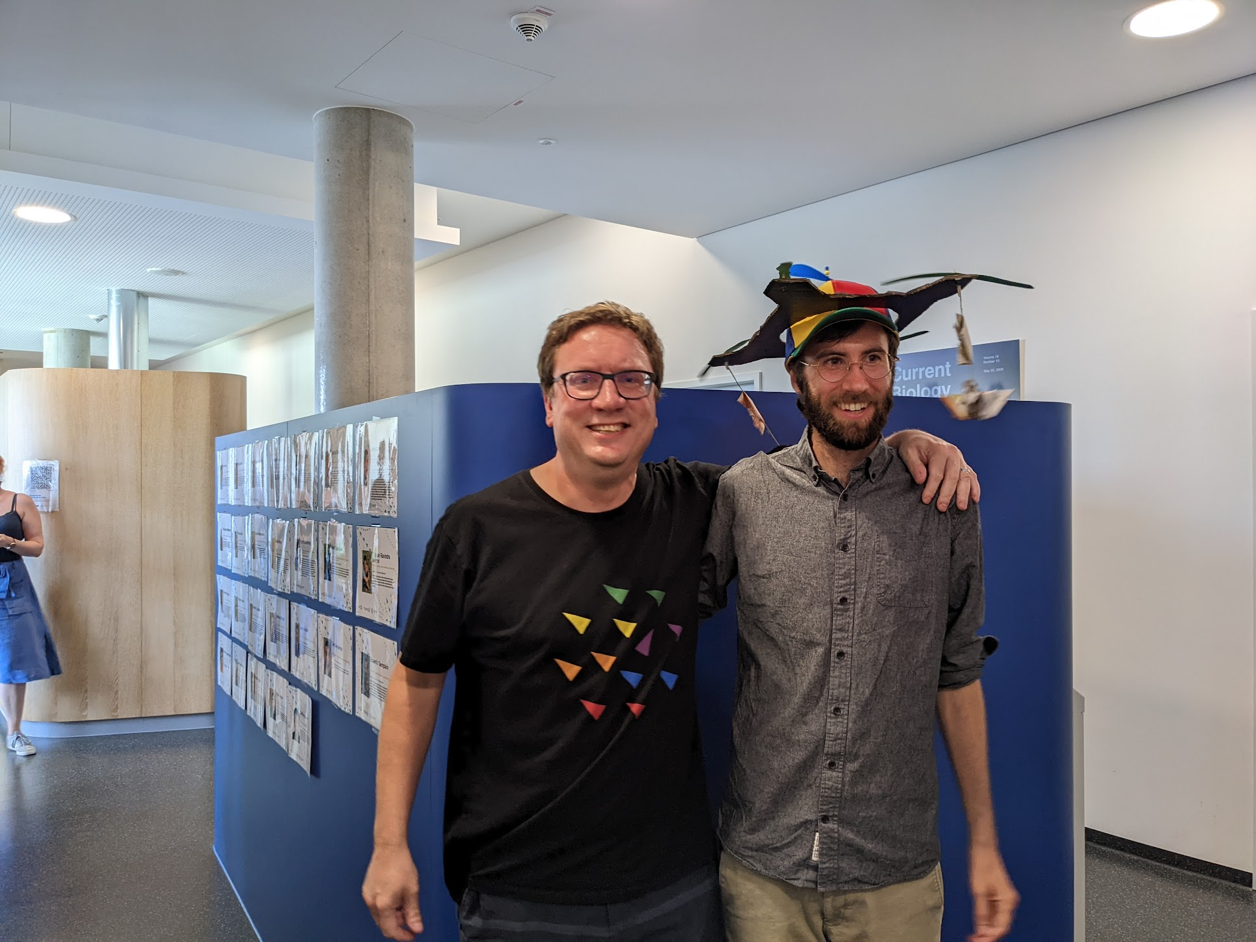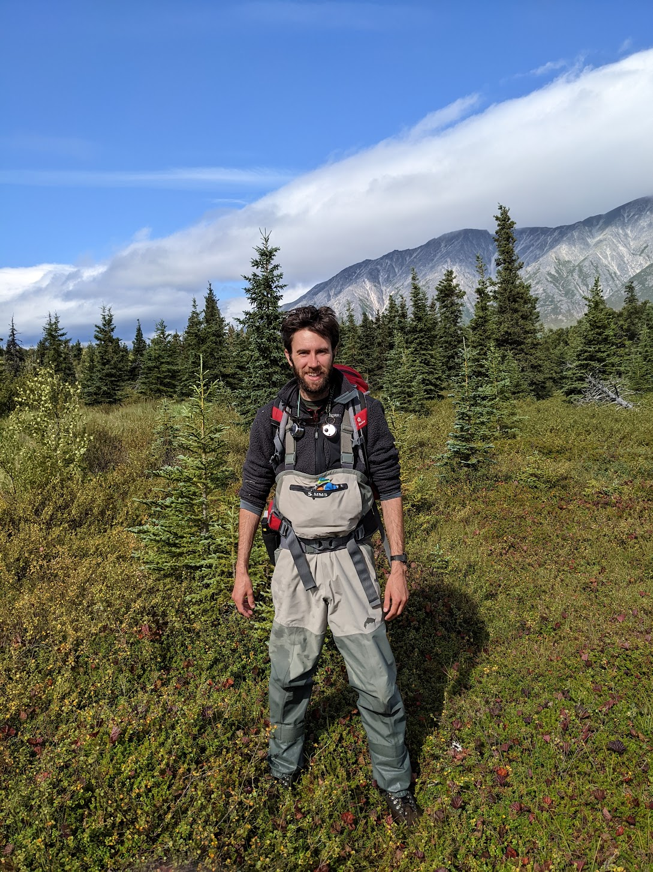Ben Koger defends his Ph.D.

Ben with supervisor Iain Couzin after his PhD defense
This September, Herd Hover team member Ben Koger successfully defended his Ph.D. at the University of Konstanz and started a new position at the University of Washington as a Washington Research Foundation postdoctoral scholar. After a busy few years working to design tools that combine imaging and deep learning techniques as part of the Herd Hover project and the wider Max Planck community, Dr. Ben will continue to work on new ways to study collective animal behavior in natural landscapes. He’ll work with Professor Andrew Berdahl at UW’s School of Aquatic and Fishery Sciences to understand how automated imaging techniques, similar to those developed for the Herd Hover project, can be used to study and manage Pacific salmon. In the clear waters of Alaska’s Bristol Bay watershed, the large and bright-red sockeye salmon can be observed from overhead cameras as they migrate up to the nesting ponds in which they reproduce. Ben plans to investigate not only the number of fish that return to each specific pond, but also how fish are able to successfully make this complex journey through novel environments and surrounded by predators and competing conspecifics. Beyond a better understanding of salmon ecology, these fish in Bristol Bay are part of the largest commercial sockeye fishery in the world and so are economically and culturally important well beyond their remote nesting ponds. To familiarize himself with this system, Ben spent four weeks in August at the Alaska Salmon Program research station on Porcupine Island in Lake Iliamna. There, he worked on piloting new techniques and learned about existing research and on-going data collection.

Ben in Alaska
The Herd Hover team wishes Ben the best of luck in his new position, and looks forward to continued collaborations!
